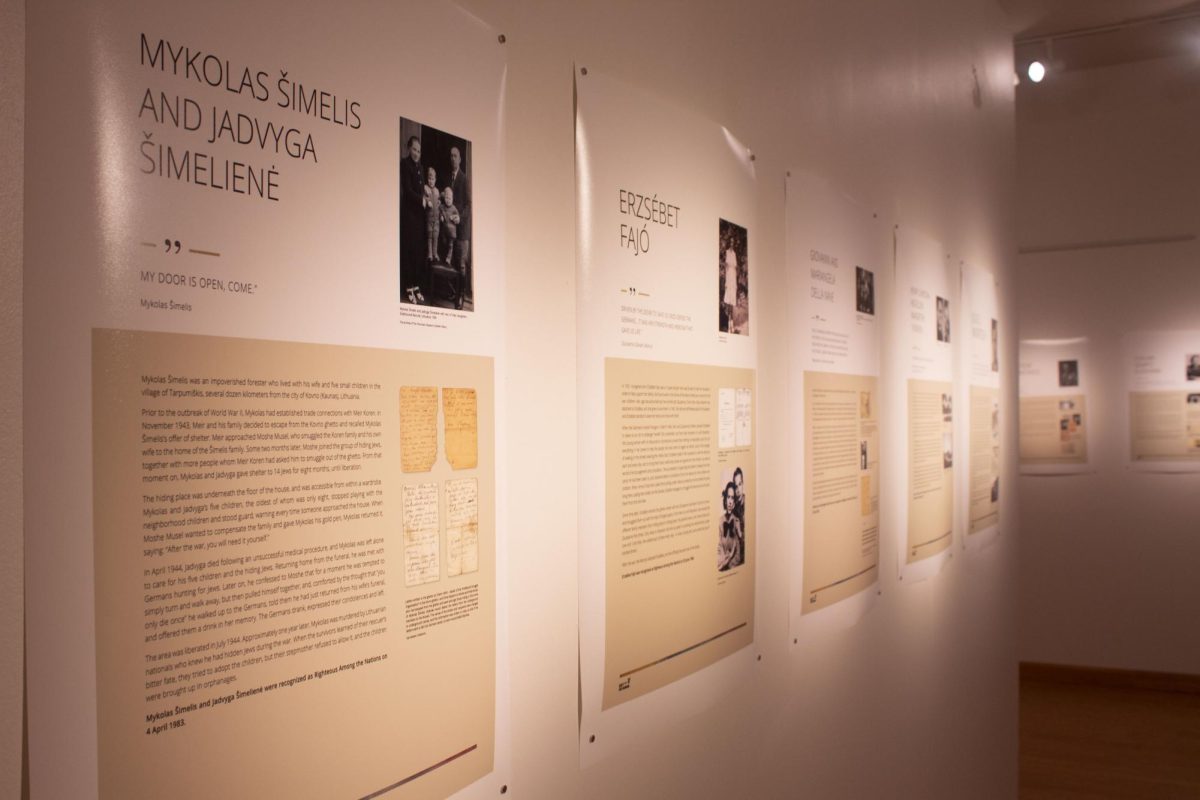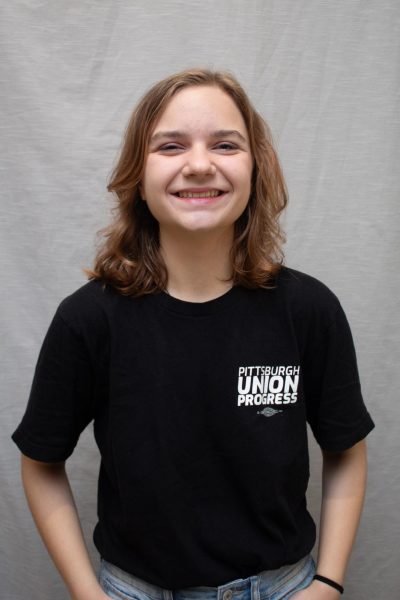The Holocaust Center of Pittsburgh has collaborated with Chatham University to host an exhibit from Yad Vashem. “The Righteous Among the Nations” is now on show in the Susan Bergman Gurrentz ‘56 Art Gallery located in Woodland Hall on the Shadyside campus. The exhibit tells the stories of 17 people who rescued Jewish people during the Holocaust.
Yad Vashem, the World Holocaust Remembrance Center, maintains a database of those rescuers it refers to as the “The Righteous Among the Nations.” Yad Vashem compiled this information into a premade exhibit of the same name for organizations such as the Holocaust Center to put on display. In the coming year, the Holocaust Center plans to focus its programming on rescue, according to Director of Programs and Education Emily Loeb.
“We all like to think that when we see something bad happening to someone else that we would have the courage and the strength to stand up and to say that something isn’t right or shouldn’t happen, but you never know what you’re going to do in those moments,” Loeb said. “I think providing examples of real people who did that is really empowering.”
She points to the story of Roddie Edmonds, a master sergeant in the United States Army who refused to abandon his Jewish soldiers. After he and his men were captured by Nazis, the Nazis instructed all of the Jewish American prisoners of war to line up in front of the barracks. Edmonds told all the soldiers to report together.
When a Nazi officer saw that all of the prisoners had lined up, he said, “They cannot all be Jews.” Edmonds replied, “We are all Jews here.” The officer pulled a gun out and aimed it at Edmonds’s forehead, demanding that he identify the Jewish soldiers. Edmonds refused. Enraged, the officer turned around and left.
One of the most striking stories is that of Erzsébet Fajó, a 13-year-old Hungarian girl who worked as a nanny for the Jewish Abonyis family. After the Nazis invaded Hungary in 1944, the father of the family insisted Fajó, then living with the family, leave to protect her from danger. While she did move out, Fajó visited the Abonyis family every day to bring food, medicine and joy to them.
After the father was taken to camp, she successfully organized for his release and obtained letters of protection from the Vatican for the rest of the family. When a Hungarian far-right group of men attacked the building the Abonyis family was staying in, Fajó smuggled them out. She hid each of the family members in safe places, visiting them every day until she was able to eventually reunite them. After the war, they adopted her.
“The Righteous Among the Nations” is open from 11 a.m. to 5:30 p.m. on weekdays with a closing reception from 4 to 6 p.m. on Thursday, Nov. 9. Issues with lighting and printing led to the exhibit opening a week late after originally being slated to open on Oct. 17. Because of the delay, the exhibit will now close on Nov. 17. After the exhibit closes, the gallery will have three more exhibits for the academic year: an exhibit by Celeta Hickman, a visiting artist; a faculty exhibition; and a senior capstone show.
For those looking to learn more, the art exhibit is part of a larger swath of programming from the Holocaust Center of Pittsburgh and Violins of Hope, an educational program centered around restored violins played by Jewish musicians during the Holocaust.
Violins of Hope’s central exhibit is open until Nov. 21 at the Posner Center on Carnegie Mellon University. It is free to the public, but attendees must register in advance on the Violins of Hope’s website. A free-to-attend Violins of Hope concert and poetry performance, “Resonance of Hope: Building Bridges Through Music,” will take place at 7:30 p.m. on Nov. 8 at the University of Pittsburgh’s Alumni Hall.
As a part of the Holocaust Center’s programming, Chatham will be hosting a Holocaust survivor, Albert Farhy, to tell his story at 6 p.m. on Nov. 9 at Eddy Theatre. Farhy was saved from being deported and sent to a concentration camp by Bulgarian officials. The talk is happening on the 85th anniversary of Kristallnacht, or the Night of Broken Glass, when Nazi soldiers organized a pogrom against Jews in Germany. Those interested in attending are required to register in advance on the Holocaust Center of Pittsburgh’s website.



